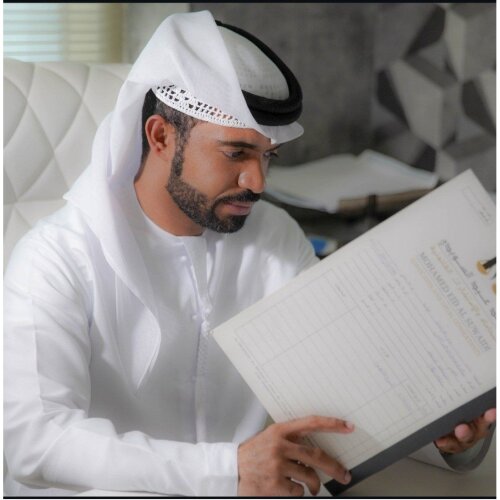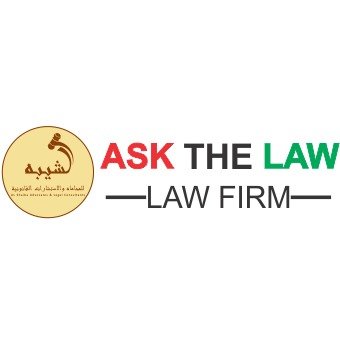
Best Private Client Lawyers in United Arab Emirates
Share your needs with us, get contacted by law firms.
Free. Takes 2 min.
Or refine your search by selecting a city:
List of the best lawyers in United Arab Emirates

About Private Client Law in United Arab Emirates
Private Client law in the United Arab Emirates (UAE) encompasses legal services focused on individuals and their families, particularly in managing wealth, inheritance, trusts, taxation, and property matters. In a rapidly growing and diverse society such as the UAE, this area of law is especially important for expatriates, high net worth individuals, and business owners seeking to safeguard their personal wealth and comply with local regulations. Private Client law assists in protecting assets, planning for succession, ensuring proper estate management, and navigating complex family disputes or cross-border legal issues.
Why You May Need a Lawyer
There are many scenarios in which people may require legal help in the field of Private Client in the UAE, including but not limited to:
- Drafting a will or succession plan to ensure assets are distributed according to personal wishes within the framework of UAE laws.
- Setting up family trusts or foundations for wealth protection and continuity.
- Navigating inheritance matters, both under Sharia law for Muslims and under the options available for non-Muslim expatriates.
- Managing property ownership and transfers, especially in freehold or leasehold areas.
- Resolving family disputes related to divorce, child custody, or asset division.
- Tax planning for local and international assets.
- Settling estate and probate matters both in the UAE and abroad.
- Ensuring compliance with the latest UAE laws on family, property, and inheritance.
A specialized Private Client lawyer can provide tailored advice, draft essential legal documents, and represent your interests in both advisory and contentious situations.
Local Laws Overview
The UAE legal system is unique as it integrates civil law principles with Sharia law, especially in matters related to inheritance and family. Important aspects relevant to Private Client law include:
- Inheritance and Succession: Sharia law typically governs the distribution of assets for Muslims, while non-Muslims now have some flexibility to apply their home country laws, subject to certain conditions. The introduction of new federal laws and the Dubai International Financial Centre (DIFC) Wills and Probate Registry offers additional options for expatriates.
- Wills and Probate: Non-Muslims are strongly encouraged to register valid wills to clarify their asset distribution. Without a will, assets may be allocated according to UAE inheritance laws, not personal wishes.
- Family Law: Significant recent reforms allow for greater flexibility for non-Muslims, such as opting for civil marriage, divorce, and custody arrangements, particularly in Abu Dhabi.
- Property Ownership: There are restrictions on foreign ownership outside designated freehold areas. Legal title and inheritance depend on registrations and compliance with local regulations.
- Trusts and Foundations: The DIFC and Abu Dhabi Global Market (ADGM) offer internationally recognised legal frameworks for establishing trusts and foundations, which can help with asset protection and succession planning.
- Taxation: The UAE has favorable personal tax laws, but international tax compliance remains important for expatriates with assets abroad.
Frequently Asked Questions
What is Private Client law?
Private Client law covers legal matters related to personal wealth, inheritance, succession planning, trusts, family law, estate administration, and tax planning for individuals and their families.
Do I need a will in the UAE?
If you have assets in the UAE or family living here, it is strongly recommended to make a will to ensure your wishes are followed, especially for non-Muslim expatriates. Without a will, local laws may dictate asset distribution.
How does inheritance work in the UAE?
For Muslims, inheritance is governed by Sharia law. Non-Muslims may choose to apply their home country laws to their UAE assets, but this must be clearly documented, often through a will lodged with the appropriate authority.
Can expatriates own property in the UAE?
Yes, expatriates can own property in designated freehold areas. Ownership and inheritance issues should be carefully planned, especially for passing property to heirs.
What happens if someone dies without a will?
If a person dies intestate in the UAE, their estate is distributed according to UAE inheritance laws, which may not reflect the deceased's personal wishes, particularly for non-Muslims and expatriates.
Are trusts recognized in the UAE?
Trusts are recognized within certain jurisdictions such as the DIFC and ADGM, which have their own legal frameworks for the creation and administration of trusts tailored for expatriates and international clients.
How do family courts handle divorce and child custody?
UAE family courts apply Sharia law by default for Muslims, but non-Muslims can now, in some emirates, choose to have their home country's laws applied to divorce and custody cases.
Can women inherit equally in the UAE?
Under Sharia law, female heirs often receive a smaller share compared to male heirs. However, through proper legal planning and the use of wills, non-Muslims can ensure more equitable distributions.
What is probate in the UAE?
Probate is the legal process of administering a deceased person's estate. In the UAE, this can involve both local courts and special jurisdictions like the DIFC, depending on where the assets are held and where the will is registered.
How can a Private Client lawyer help me?
A Private Client lawyer can advise on the best strategies to protect your assets, draft and register wills, create trusts or foundations, assist with property transfers, represent you in family or inheritance disputes, and ensure you comply with all relevant UAE regulations.
Additional Resources
If you require further information or official support, the following local resources and authorities may be helpful:
- Dubai Courts: Inheritance and family law division
- DIFC Wills and Probate Registry
- Abu Dhabi Judicial Department
- ADGM Registration Authority
- UAE Ministry of Justice
- UAE Ministry of Interior (for civil registration matters)
- Professional associations like the Emirates Lawyers Association
Next Steps
If you believe you need legal assistance with a Private Client matter in the UAE, consider taking the following steps:
- Identify your specific legal issue, such as inheritance, property, tax, or family law.
- Gather relevant documents including identification, property deeds, marriage certificates, or any previous legal documents.
- Research and shortlist law firms or individual lawyers who specialize in Private Client services, especially those with experience assisting expatriates or international clients.
- Schedule a consultation to discuss your needs and get tailored advice.
- Follow professional legal advice for drafting documents, registering wills, setting up trusts or foundations, or resolving disputes.
Taking proactive steps today can help you secure your assets, protect your family, and ensure legal compliance in the future.
Lawzana helps you find the best lawyers and law firms in United Arab Emirates through a curated and pre-screened list of qualified legal professionals. Our platform offers rankings and detailed profiles of attorneys and law firms, allowing you to compare based on practice areas, including Private Client, experience, and client feedback.
Each profile includes a description of the firm's areas of practice, client reviews, team members and partners, year of establishment, spoken languages, office locations, contact information, social media presence, and any published articles or resources. Most firms on our platform speak English and are experienced in both local and international legal matters.
Get a quote from top-rated law firms in United Arab Emirates — quickly, securely, and without unnecessary hassle.
Disclaimer:
The information provided on this page is for general informational purposes only and does not constitute legal advice. While we strive to ensure the accuracy and relevance of the content, legal information may change over time, and interpretations of the law can vary. You should always consult with a qualified legal professional for advice specific to your situation.
We disclaim all liability for actions taken or not taken based on the content of this page. If you believe any information is incorrect or outdated, please contact us, and we will review and update it where appropriate.
Browse private client law firms by service in United Arab Emirates
United Arab Emirates Attorneys in related practice areas.
Browse private client law firms by city in United Arab Emirates
Refine your search by selecting a city.
















